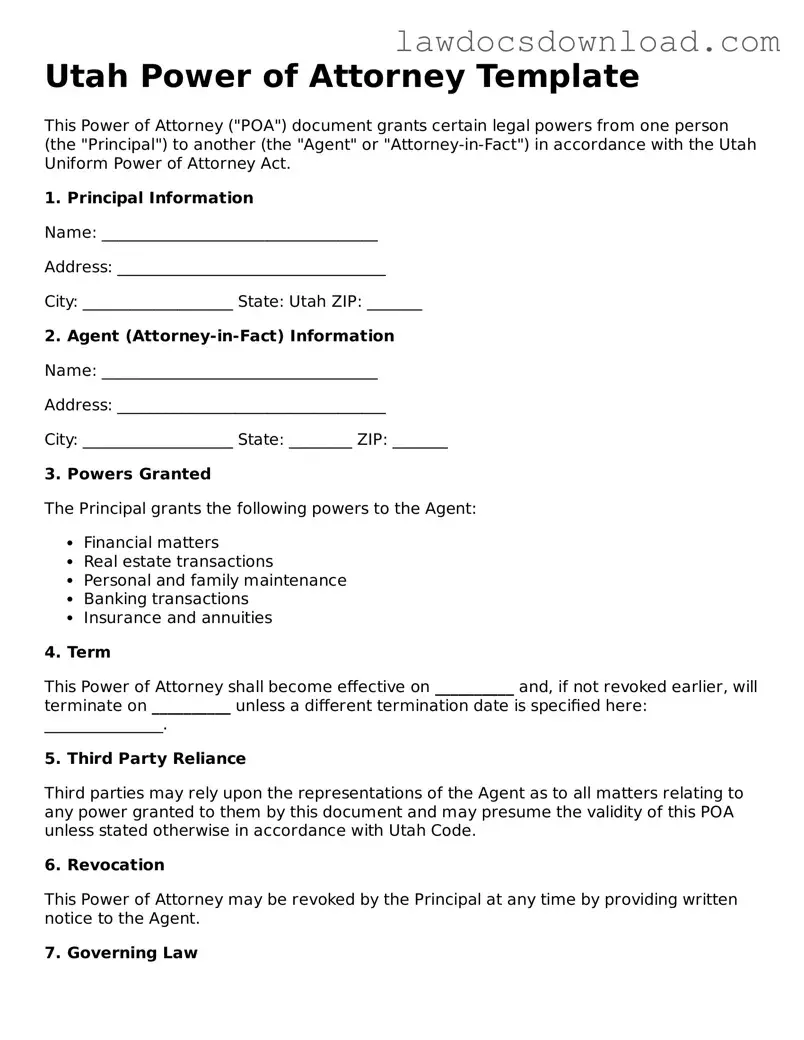Legal Utah Power of Attorney Form
A Utah Power of Attorney (POA) form is a document that allows an individual to appoint a trusted person to manage their financial, legal, and health-related decisions on their behalf. This form is particularly crucial for scenarios where the individual may not be able to make such decisions themselves due to various reasons, including incapacity. It ensures that personal affairs are handled according to the individual's wishes even when they are not in a position to oversee these matters directly.
Launch Power of Attorney Editor Here

Legal Utah Power of Attorney Form
Launch Power of Attorney Editor Here

Launch Power of Attorney Editor Here
or
Free Power of Attorney
Get this form done in minutes
Complete your Power of Attorney online and download the final PDF.